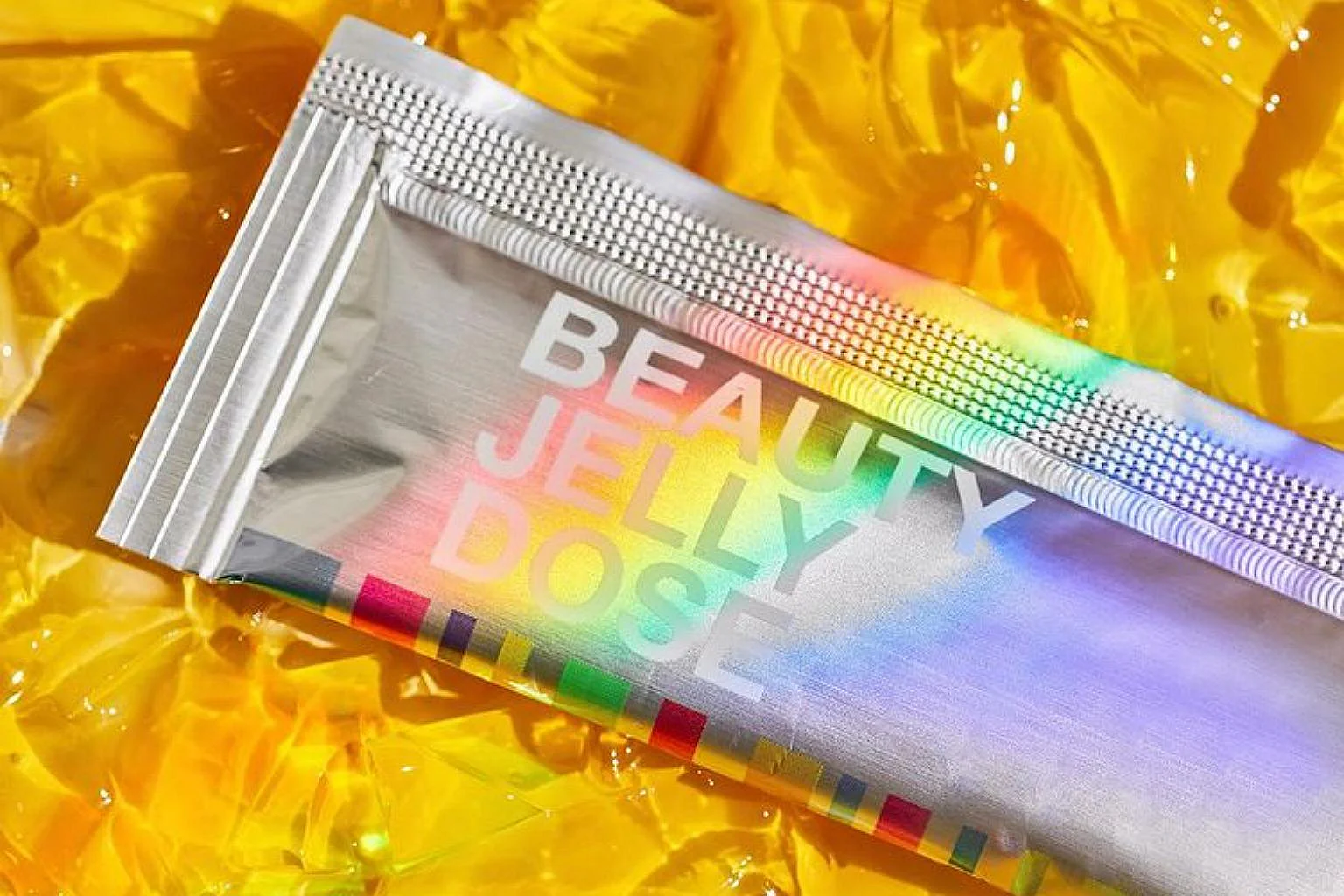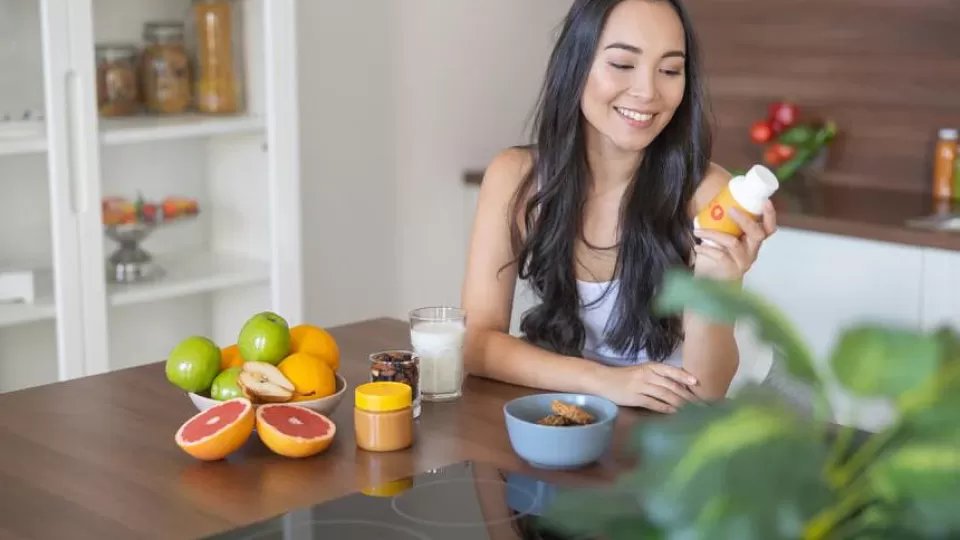August 26, 2022
SINGAPORE – When Ms Vashty Soegomo reached for her first box of whitening tablets, she was only 28.
The real estate agent, now 40 and who was on the hunt for a product to brighten her dull skin, had no idea who manufactured the pills (it was a savvy local entrepreneur with no scientific background or expertise) or even what the ingredients were.
Since then, she has rotated among various beauty supplements, from collagen boosters to “edible stem cells and sunscreens”.
She is one of a growing number of women who are ingesting their skincare on a regular basis, on top of applying it.
According to market research company Grand View Research, the Asia-Pacific supplements market size was valued at US$140.4 billion (S$195.3 billion) in 2021, while the North American supplements market size was valued at only US$52.9 billion in the same year. The Asia-Pacific market size is expected to reach US$240.6 billion by 2030.
Beauty supplements are hugely popular in Asia because of the prevailing belief that “you are what you eat”, says Dr Paul Chia, a consultant dermatologist at The Dermatology Practice in Orchard.
“For centuries, Asian women have viewed collagen as a fountain of youth, routinely consuming food like pig’s feet and shark’s fin in the hope of smoothing wrinkled skin,” he says.
Not surprisingly, a new generation of edible brighteners, tighteners and whiteners is cropping up not just in pharmacies and wellness shops, but also at beauty salons and dermatology clinics, as well as on Facebook and Instagram.
In 2018, American social media influencer Tati Westbrook raked in a tidy sum in just half a day, after she sold half her stock of hair-skin-and-nails booster – about 25,000 bottles – on the day of its launch. The bottles cost US$40 each.

Real Estate agent Vashty Soegomo is now taking four types of beauty supplements. PHOTO: VASHTY SOEGOMO
Last year, American influencer Sommer Ray, who has 26.3 million followers on Instagram, co-founded a line of sugar-free, plant-based gummies called Imarais Beauty, which promised “hydrated, glowing and plump-looking skin”.
Is the hype real?
In Singapore, the beauty supplements market is thriving too.
Gone are the glory days of Imedeen, with its tiny brown “anti-ageing” pills from the 1980s that kick-started the nutri-cosmetics trend.
Today, such supplements come in a dizzying array of forms and flavours.
Home-grown beauty brand Skin Inc has created a collagen jelly snack called the Beauty Jelly Dose that can be consumed on the go, while local clean beauty label Aspurely has produced collagen and skin-brightening shots that can easily be added into drinks.

Skin Inc has created the Beauty Jelly Dose that can be consumed on the go. PHOTO: ILOVESKINIC/INSTAGRAM
Ms Christine Chua, beauty analyst for Apac at trend-forecasting company WGSN, confirms that “beauty snacking” is on the rise, calling it one of the top trends for 2022.
“Beauty supplements are increasingly built around busy schedules,” she says. “There has also been a recent influx of ‘fun food’ formats like ice cream, biscuits, candies, chocolates and gummies – a marked shift away from their often clinical presentation.”
Examples include Chinese beauty brand Chando and its niacinamide-infused biscuit stick as well as Chinese skincare supplement brand XiaoXiandun with its bird’s nest popsicles.
Just how effective are these supplements? Well, a few appear to live up to the hype.
For example, research has consistently shown that specific strains of probiotics can prevent and even treat skin issues such as eczema, atopic dermatitis, dry skin and acne.
Clinical studies have also concluded that polypodium leucotomos extract works well as an edible sunscreen because it has antioxidant and photo-protective properties.
Dr Chia says: “It should not be used as a replacement for your sun cream, but used together, they work synergistically against the damaging effects of ultraviolet radiation exposure.”
Then, there are oral antioxidants like vitamin C and green tea extract.
“Studies show that skin colour and firmness and facial luminosity improve with appropriate oral antioxidant intake,” he says.
But experts caution that most edible beauty supplements lack credible medical evidence.
Dr Chia says: “There is extensive research and proven evidence that appropriate skincare like sun protection, topical retinoids, topical vitamin C and antioxidants, and gentle exfoliation help to improve skin quality and slow skin ageing.”
But the same cannot be said for edible supplements.
“Research for edible skincare is still in its infancy. Many studies proving its efficacy are small and usually funded by the industry. Consider the collagen pill, which is touted to boost the collagen in your skin and erase wrinkles. When it is eaten, your stomach acids break down the collagen proteins before they have a chance to reach your skin intact,” he adds.
Lighter regulation by health authority
Vitamins and supplements are not regulated in the same way as medicines are by the Health Sciences Authority (HSA) of Singapore. These are not subject to approvals, licensing and evaluation for effectiveness.
“Collagen from animal or plant sources intended for use as a skin, hair or nail supplement in dosage forms such as capsules or liquids in small, measured doses are health supplements. Health supplements are commonly taken for the purpose of supplementing the diet to enhance or support health, and their ingredients are generally recognised to be safe for consumption,” says an HSA spokesman in an e-mail interview with The Straits Times.
A lighter-touch regulatory approach is adopted compared with medicines as supplements do not purport to diagnose, treat or cure any medical conditions or diseases, the spokesman adds.
The onus then is on the manufacturers, importers, wholesalers, distributors and retailers to ensure that their products meet the required safety and quality standards.
In Australia, the authorities announced new social media advertising laws which require influencers to disclose paid advertisements and remove testimonials on beauty supplements and vitamins from July 2022.
While popping the occasional vitamin for beauty is unlikely to be harmful, the trouble starts when consumers go on an unchecked supplement spree, by mixing their beauty supplements or consuming more than what their bodies need.
Ms Vashty, for instance, found out that the whitening tablets she took – which had rave reviews online – worked wonders, but only for a while.
“My skin became brighter and a lot smoother. However, I stopped after three months because these things stop becoming effective after some time,” she says.
She also stays away from certain products after learning the hard way. “Some of these supplements contained a lot of sugar and made me pile on the pounds. When I stopped taking them, the weight went down again,” she says.
However, she is convinced that the pretty pills she takes – she is now on four types of beauty supplements and sets a daily alarm as a reminder to take them – contribute to the glow of her skin.
“I take them with me wherever I go. Even on days when I’m busy with a viewing, I will pop into my car to take them,” she says.
A cautionary tale

Ms Anne Phey spent $300 to $500 on supplements every month and would purchase them from various sources. PHOTO: COURTESY OF ANNE PHEY
Ms Anne Phey has a more sombre story.
She says: “At the peak of my obsession, I was taking 10 to 15 supplements a day, popping them from the moment I woke up until I slept. I probably ate more supplements than food.”
The 50-something founder of Leadership Coaching School spent $300 to $500 on supplements every month and would purchase them from various sources.
“Beauty salons recommended products for beauty, detox and slimming. My personal fitness trainers also recommended products to accelerate the training effects to burn fat and build muscle mass,” she says.
Apart from heart palpitations triggered by the fat burners, Ms Phey began to suffer from a hormonal imbalance after a few years, which her doctor attributed to stress. She thinks the imbalance could have been caused by the supplements.
Her obsession came to a screeching halt one fateful day, when she got into a motorbike crash at the age of 29.
“This near-death experience showed me that the body can repair itself. I stopped most of my supplements as I was in recovery and, since then, I have been in even better shape than I was with supplements,” she says.
She is now furthering her studies in the field of holistic science and self-healing.
“If I were to go back in time, I would tell my younger self to build my health and beauty by living a balanced lifestyle. Beyond supplements, good mental health, sleep and a peaceful heart are also important,” she says.
Dr Chia says supplements should be taken in moderation and that more does not equal better. “For example, too much vitamin A can cause headaches and liver damage, reduce bone strength and cause birth defects. High doses of some water-soluble vitamins, such as vitamin B6, can also become toxic. Too much vitamin C or zinc could cause nausea, diarrhoea and stomach cramps,” he says, referring to the common vitamins found in supplements.
Still, it is difficult not to be seduced by the sleek packaging and ebullient promises of more lustrous hair or fair skin.
Beauty analyst Ms Chua says consumers can look forward to more science-backed supplements in the near future.
“There is a demand for credibility and transparency within the supplements industry. Especially with varying regional regulations, false claims and lack of evidence, they have often been seen as gimmicky. Even herbal supplements used in traditional Chinese medicine are now having their formulations put through extensive testing,” she says.
And from August, HSA will be establishing a local database of “safe and good quality” health supplements and traditional medicines that consumers can refer to.
To be included in this database, companies need to provide HSA with the relevant documents to demonstrate that their products meet the necessary safety and quality standards as well as labelling requirements.
Staying safe
Looking for a good-quality beauty supplement to supplement the effects of skincare? Here is what to be aware of before you buy, says Dr Paul Chia.
– Get your skincare or health supplements from credible suppliers or brands.
– Skincare companies making these products frequently highlight their research studies, many of which are small and usually industry-funded, to convince consumers that edible beauty supplements are effective. Check the manufacturers’ websites or ask if they have documentation from reputable organisations such as universities and scientific institutions.
– Beware of exaggerated claims like “100 per cent effective”, “guaranteed”, “world’s best” and “quickly and effectively”. These are misleading and most likely do not have substantial scientific data or studies to back up the claims that follow.

Dr Paul Chia is a consultant dermatologist at The Dermatology Practice in Orchard. PHOTO: DR PAUL CHIA
– Scrutinise the ingredients list. Look for things such as patents for ingredients and the manufacturer of the ingredient, and not just claims of what the supplement is touted to do. Make sure you are not taking the same ingredients from different supplements to avoid overdosing.
– Harmful ingredients that consumers should look out for include titanium dioxide, magnesium stearate, artificial colours and dyes, hydrogenated oil and sodium benzoate. When sodium benzoate reacts with vitamin C, it can convert to benzene, a known carcinogen.
– Supplements which are labelled “natural” are not guaranteed to be safe. If you are unsure, consult your dermatologist or doctor before taking them.
– People with kidney and liver disease should be particularly cautious when taking health supplements and should do so only after consulting their doctor.


